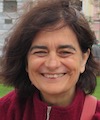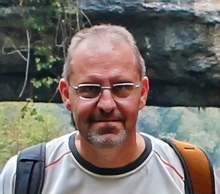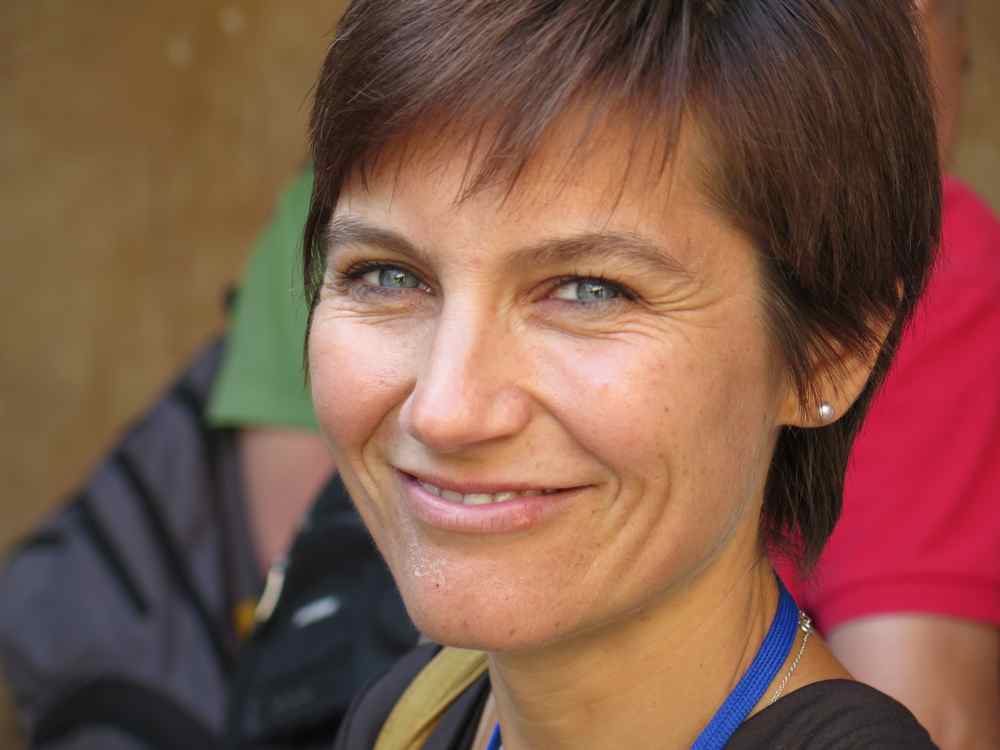Studying at the University of Verona
Here you can find information on the organisational aspects of the Programme, lecture timetables, learning activities and useful contact details for your time at the University, from enrolment to graduation.
Academic calendar
The academic calendar shows the deadlines and scheduled events that are relevant to students, teaching and technical-administrative staff of the University. Public holidays and University closures are also indicated. The academic year normally begins on 1 October each year and ends on 30 September of the following year.
Course calendar
The Academic Calendar sets out the degree programme lecture and exam timetables, as well as the relevant university closure dates..
| Period | From | To |
|---|---|---|
| I semestre | Oct 1, 2020 | Jan 29, 2021 |
| II semestre | Mar 1, 2021 | Jun 11, 2021 |
| Session | From | To |
|---|---|---|
| Sessione invernale d'esame | Feb 1, 2021 | Feb 26, 2021 |
| Sessione estiva d'esame | Jun 14, 2021 | Jul 30, 2021 |
| Sessione autunnale d'esame | Sep 1, 2021 | Sep 30, 2021 |
| Session | From | To |
|---|---|---|
| Sessione di laurea estiva | Jul 22, 2021 | Jul 22, 2021 |
| Sessione di laurea autunnale | Oct 14, 2021 | Oct 14, 2021 |
| Sessione di laurea autunnale - Dicembre | Dec 9, 2021 | Dec 9, 2021 |
| Sessione invernale di laurea | Mar 16, 2022 | Mar 16, 2022 |
| Period | From | To |
|---|---|---|
| Festa dell'Immacolata | Dec 8, 2020 | Dec 8, 2020 |
| Vacanze Natalizie | Dec 24, 2020 | Jan 3, 2021 |
| Vacanze di Pasqua | Apr 2, 2021 | Apr 6, 2021 |
| Festa del Santo Patrono | May 21, 2021 | May 21, 2021 |
| Festa della Repubblica | Jun 2, 2021 | Jun 2, 2021 |
| Vacanze Estive | Aug 9, 2021 | Aug 15, 2021 |
Exam calendar
Exam dates and rounds are managed by the relevant Science and Engineering Teaching and Student Services Unit.
To view all the exam sessions available, please use the Exam dashboard on ESSE3.
If you forgot your login details or have problems logging in, please contact the relevant IT HelpDesk, or check the login details recovery web page.
Should you have any doubts or questions, please check the Enrollment FAQs
Academic staff
 rosanna.laking@univr.it
rosanna.laking@univr.it

Mazzuoccolo Giuseppe
 giuseppe.mazzuoccolo@univr.it
giuseppe.mazzuoccolo@univr.it
 +39 0458027838
+39 0458027838
 chiara.nardon@univr.it
chiara.nardon@univr.it
 daniela.pianezzi@univr.it
daniela.pianezzi@univr.it
 claudio.tomazzoli@univr.it
claudio.tomazzoli@univr.it
 franco.zivcovich@univr.it
franco.zivcovich@univr.it
 simone.zuccher@univr.it
simone.zuccher@univr.it
Study Plan
The Study Plan includes all modules, teaching and learning activities that each student will need to undertake during their time at the University.
Please select your Study Plan based on your enrollment year.
1° Year
| Modules | Credits | TAF | SSD |
|---|
2° Year activated in the A.Y. 2021/2022
| Modules | Credits | TAF | SSD |
|---|
3° Year activated in the A.Y. 2022/2023
| Modules | Credits | TAF | SSD |
|---|
| Modules | Credits | TAF | SSD |
|---|
| Modules | Credits | TAF | SSD |
|---|
| Modules | Credits | TAF | SSD |
|---|
| Modules | Credits | TAF | SSD |
|---|
Legend | Type of training activity (TTA)
TAF (Type of Educational Activity) All courses and activities are classified into different types of educational activities, indicated by a letter.
Operations Research (2022/2023)
Teaching code
4S00001
Teacher
Coordinator
Credits
6
Language
Italian
Scientific Disciplinary Sector (SSD)
MAT/09 - OPERATIONS RESEARCH
Period
Semester 2 dal Mar 6, 2023 al Jun 16, 2023.
Learning objectives
The student will encounter in concrete the concepts of: problems, models, formulations of operations research, but also of instances, algorithms, reductions and mappings among problems of the computer science field. The course will propose some models of operations research, at least the following: linear programming (LP), integer linear programming (ILP), max-flows and min-cuts, bipartite matchings and node covers, minimum spanning trees, shortest paths, Eulerian paths, and some models resorting on dynamic programming among which some knapsack variants. For all these models/problems, except PLI, the student will learn the solving algorithms, the properties on which they hinge, and how to conduct their execution.
However, besides and beyond this, the course aims at building a good and active relationship, practice, and acquaintance, with general mathematical methodologies and techniques (more typical of discrete math and for this reason not yet fully assimilated from our students) and some basic underpinnings of computer science.
In particular, we insist on the dialog with problems and with the art/technique of conjecturing, no occasion is lost to spotlight where invariants and monovariants play a role in proofs, algorithms and data structures. We build up confidence with mathematical induction as an active tool for problem solving, and introducing the dialects of induction most voted to efficiency (divide et impera, recursion with memoization, dynamic programming).
Some basic principles of informatics are underlined, like coding, algorithms, data structures, recursion as a counterpart of mathematical induction and of computability. (In some editions of the course first scratch introductions to numerability and computability have been offered). Coming to efficiency, our central perspective, the use of asymptotic notation is justified and adopted, the classes P, NP, coNP are introduced, and the concepts of good characterizations, good conjectures and good theorems are illustrated in length and complexity theory is advertised as a lively source of new methodologies in the art of facing problems and enquiry their intrinsic structural properties. Several aspects of the role and importance of the art of reducing one problem to another are discussed and clarified. The life cycle of a good conjecture, the workflow linking good conjectures and algorithms, the production and interpretation of counterexamples as a means of dialog with the problem, and the possible use of them in obtaining NP-completeness proofs, are all discussed, investigated and exemplified in action. Explicit emphasis is constantly given to the role and use of certificates.
Meanwhile these transversal and high competences of methodological interest and imprinting are delivered, the students is asked to learn and develop several concrete procedural competences, in particular within LP, and in an algorithmic treatment of graph theory, introduced as a versatile model and an intuitive and expressive language for the formulation of problems.
For a complete and detailed list of all these procedural competences delivered and requested, see the past exams and corrections over the various editions of the course.
The notions from computational complexity introduced in the course, and the attention to the languages of the certificates, will lead the student to recognize with more awareness the structure of a sound proof.
Dealing with instances, problems, models, both from the perspective of algorithms and of models and formulations, will enforce the attitude and competence in casting simple problems from the applications into mathematical models. The knowledge of the paradigmatic results of linear programming theory (duality, complementary slackness, economic interpretation, sensitivity analysis) will provide the student with important tools in obtaining non-trivial insights on the practical problem from the model.
Prerequisites and basic notions
no particular prerequisite
Program
Operations Research offers quantitative methods and models for the optimal management of resources, and optimization of profits, services, strategies, procedures.
This course of Operations Research gets to Mathematical Programming moving from Algorithmics and Computational Complexity.
After revisiting mathematical induction, recursion, divide et impera, with a curiosity driven problem solving approach, we insist on dynamic programming thinking which gets then exemplified in a few classical models of Operations Research and Computational Biology.
With emphasis on method and techniques, we get involved in formulating, encoding and modeling problems, conjecturing about them, reducing one to the other,
and well characterizing them.
The course offers an in-depth introduction to linear programming.
Following the historical path, we introduce graphs as for modeling,
and explore the basic fundamental results in combinatorial optimization and graph theory.
LIST OF TOPICS:
1. Basic Notions
problems
models
algorithms
complexity
2. Introduction to Algorithms and Complexity
analysis of a few algorithms
design techniques (recursion, divide et impera, recursion with memoization, dynamic programming, greedy)
complexity theory (P, NP, co-NP, good characterizations, good conjectures, examples of NP-completeness proofs)
3. Combinatorial Optimization Models
knapsack problems
Problems on sequences
Problems on DAGs
4. Introduction to Graph Theory
graphs and digraphs as models
a few good characterizations (bipartite, Eulerian, acyclic, planar graphs)
a few NP-hard models (Hamiltonian cycles, cliques, colorability)
shortest paths
minimum spanning trees
maximum flows
bipartite matchings
5. Linear Programming (LP)
the LP and the ILP models (definition, motivations, complexity, role)
geometric method and view (feasibility space,
pivot, duality, dual variables, degeneracy, complementary slackness)
standard and canonical form
simplex method
duality theory
complementary slackness
economic interpretation of the dual variables
sensitivity analysis
BOOKS, NOTES AND OTHER DIDACTIC MATERIALS AND RESOURCES:
At the following page you find a list of available materials (books, notes, videos) about topics covered within the course:
http://profs.sci.univr.it/~rrizzi/classes/RO/materiali
If you find out further effective material help us enlarging this list.
Bibliography
Didactic methods
We focus more on the acquisition of active skills than on a wealth of theoretical knowledge.
For this reason, we will favor a lesson that is as interactive as possible, to be conducted with the full and collaborative participation of the students.
Learning assessment procedures
Col vostro aiuto, abbiamo sempre ricercato la trasparenza sui meccanismi di correzione e valutativi ma dobbiamo evidenziare una particolarità marcata di questo che è l'unico corso in ambito matematica discreta offerto alla triennale:
nella valutazione delle risposte diamo grande importanza alla qualità dei certificati prodotti.
Di fatto, lo spirito con cui l'esame va affrontato e di cosa e come elaborare e proporre in risposta agli esercizi e` in linea con alcuni dei messaggi metodologici che si mira a trasmettere con il corso. Speriamo lo studente possa fare propri questi approcci e queste metodologie. Più lo studente saprà interpretare e fare proprie le nostre prospettive, e si approccerà in modo collaborativo e propositivo al corso ed alla verifica, più l'esame potrà essere di soddisfazione.
Evaluation criteria
With your help, we always sought transparency on the correction procedures and evaluation mechanisms but we better underline a peculiarity of the Operations Research course, the only one in discrete mathematics at the bachelor:
in evaluating the answers we attach great importance to the quality of the certificates produced.
In fact, the approach and spirit with which you should approach the course and the exam, and what to deliver and elaborate in your answers to the exercises, is actually related to some deep methodological messages that we decided to place at the core of the course. The more the student adopts and interprets these approaches, the more enriching the course and the easier the exam. This will be important to get the most from the course and perform well during the exam.
Criteria for the composition of the final grade
We do not give any weight to wrong answers (really, we are not scandalized by anything).
Only correct answers count for us. We add up the points collected through these, and this sum is mapped into the vote via a function that we guarantee to be monotonic continuous. We reserve the right to design this function after the conclusion of the task (to make the necessary adjustments) but typically it is the sum of the points plus an offset value.
Exam language
Italiano
Type D and Type F activities
Le attività formative in ambito D o F comprendono gli insegnamenti impartiti presso l'Università di Verona o periodi di stage/tirocinio professionale.
Nella scelta delle attività di tipo D, gli studenti dovranno tener presente che in sede di approvazione si terrà conto della coerenza delle loro scelte con il progetto formativo del loro piano di studio e dell'adeguatezza delle motivazioni eventualmente fornite.
| years | Modules | TAF | Teacher | |
|---|---|---|---|---|
| 1° 2° | History and Didactics of Geology | D |
Guido Gonzato
(Coordinator)
|
|
| 1° 2° 3° | Algorithms | D |
Roberto Segala
(Coordinator)
|
|
| 1° 2° 3° | Scientific knowledge and active learning strategies | F |
Francesca Monti
(Coordinator)
|
|
| 1° 2° 3° | Genetics | D |
Massimo Delledonne
(Coordinator)
|
|
| years | Modules | TAF | Teacher |
|---|---|---|---|
| 1° 2° 3° | Algorithms | D |
Roberto Segala
(Coordinator)
|
| 1° 2° 3° | Python programming language | D |
Vittoria Cozza
(Coordinator)
|
| 1° 2° 3° | Organization Studies | D |
Giuseppe Favretto
(Coordinator)
|
| years | Modules | TAF | Teacher | |
|---|---|---|---|---|
| 1° | Subject requirements: mathematics | D |
Rossana Capuani
|
|
| 1° 2° 3° | ECMI modelling week | F | Not yet assigned | |
| 1° 2° 3° | ESA Summer of code in space (SOCIS) | F | Not yet assigned | |
| 1° 2° 3° | Google summer of code (GSOC) | F | Not yet assigned | |
| 1° 2° 3° | Introduzione all'analisi non standard | F |
Sisto Baldo
|
|
| 1° 2° 3° | C Programming Language | D |
Pietro Sala
(Coordinator)
|
|
| 1° 2° 3° | LaTeX Language | D |
Enrico Gregorio
(Coordinator)
|
|
Career prospects
Module/Programme news
News for students
There you will find information, resources and services useful during your time at the University (Student’s exam record, your study plan on ESSE3, Distance Learning courses, university email account, office forms, administrative procedures, etc.). You can log into MyUnivr with your GIA login details: only in this way will you be able to receive notification of all the notices from your teachers and your secretariat via email and soon also via the Univr app.
Graduation
Documents
| Title | Info File |
|---|---|
|
|
pdf, it, 31 KB, 29/07/21 |
|
|
pdf, it, 31 KB, 29/07/21 |
|
|
pdf, it, 171 KB, 20/03/24 |
List of theses and work experience proposals
| theses proposals | Research area |
|---|---|
| Formule di rappresentazione per gradienti generalizzati | Mathematics - Analysis |
| Formule di rappresentazione per gradienti generalizzati | Mathematics - Mathematics |
| Proposte Tesi A. Gnoatto | Various topics |
| Mathematics Bachelor and Master thesis titles | Various topics |
| THESIS_1: Sensors and Actuators for Applications in Micro-Robotics and Robotic Surgery | Various topics |
| THESIS_2: Force Feedback and Haptics in the Da Vinci Robot: study, analysis, and future perspectives | Various topics |
| THESIS_3: Cable-Driven Systems in the Da Vinci Robotic Tools: study, analysis and optimization | Various topics |
| Stage | Research area |
|---|---|
| Internship proposals for students in mathematics | Various topics |
Attendance
As stated in the Teaching Regulations for the A.Y. 2022/2023, except for specific practical or lab activities, attendance is not mandatory. Regarding these activities, please see the web page of each module for information on the number of hours that must be attended on-site.
Career management
Student login and resources
Erasmus+ and other experiences abroad
Commissione tutor
La commissione ha il compito di guidare le studentesse e gli studenti durante l'intero percorso di studi, di orientarli nella scelta dei percorsi formativi, di renderli attivamente partecipi del processo formativo e di contribuire al superamento di eventuali difficoltà individuali.
E' composta dai proff. Sisto Baldo, Marco Caliari, Francesca Mantese, Giandomenico Orlandi e Nicola Sansonetto



































